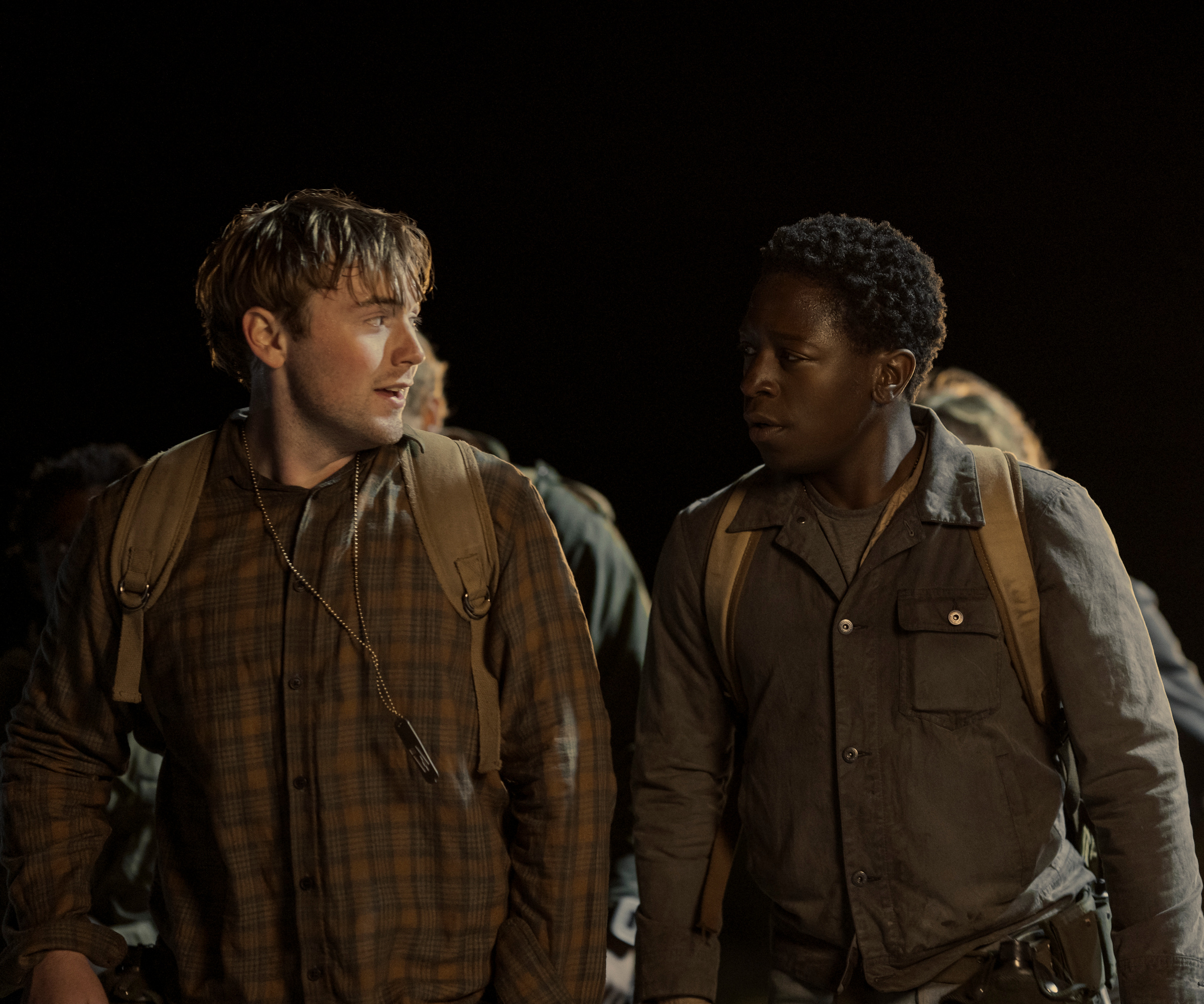The Long Walk
The Long Walk
VERDICT: An impressive ensemble of young actors and taut filmmaking makes this adaptation of Stephen King’s death-march saga gripping and grim.
Post-apocalyptic movies currently face a challenge similar to the one that all of cinema had to contend with at the dawn of television: How do you get people to pay to see the collapse of society when they can watch it at home for free? One way is to avoid blinking in the face of the abyss, and The Long Walk, working from a very high concept (courtesy of Stephen King’s novel), finds the humanity amid the monstrous.
Lionsgate has wisely put Francis Lawrence on the case, and the studio’s in-house maestro of teens-versus-fascism in the Hunger Games series brings a notably different tone: there’s no wild oligarch couture, no media satire, no political chicanery, nothing to distract from the ice-cold sight of adolescents literally trudging to their doom. Without window dressing, The Long Walk earns attention with an adaptation (by JT Mollner, Strange Darling) that brings these young characters to life — just as they’re about to die — and a spare visual style that accentuates the bleakness without blurring into gray monotony.
In an unspecified year (the abandoned cars along the road date from the 1950s to 1980 or so), the government of a devastated United States sponsors an annual event called The Long Walk. One young man from each of the 50 states participates, and the literal last one standing wins a huge financial windfall. Despite the odds against them, teens everywhere clamor to be a part of the Walk, as it represents their only chance to lift their families out of poverty.
The film opens with a distraught Ginnie (Judy Greer) driving her 18-year-old son Ray (Cooper Hoffman) to the starting line, and we’re introduced to some of his 49 competitors. There are friendly ones, like Peter (David Jonsson, Rye Lane) and Hank (Ben Wang, Karate Kid: Legends), and clear rivals, like the obnoxious Barkovitch (Charlie Plummer, Lean On Pete) and the calculating Stebbins (Garrett Wareing, Manifest). The screenplay provides insight and background on these characters, as well as a deeply felt friendship that forms between Ray and Peter, but always within the context of this grueling competition. Apart from the opening scene with Ginnie and a brief flashback or two, all of The Long Walk takes place on The Long Walk.
There’s something exhilarating about a filmmaker fully embracing a limited space, as Lawrence does here. Though set outdoors — never straying from the cluster of walkers and their military escort — the film offers the same suffocating claustrophobia and intensity of closed-space classics like Bug or Locke or The Hateful Eight. The young men on this walk can’t escape this horror, but they all signed up in the first place in an attempt to escape the greater horror that is their lives under this government.
There are physical challenges along the way, ranging from charley-horses to vivid gastric distress, but the walkers know that they can never walk at less than three miles an hour, or they face warnings. And after three warnings, they get shot in the head, with Jo Willems’ camera never flinching from the brutal executions. It’s a gut-punching metaphor for life under totalitarianism — with The Major (a chilling Mark Hamill) representing government-backed oppression — and to its credit, The Long Walk never presents its horrors discreetly or through a filter.
Casting director Rich Delia has assembled an impressive passel of actors; Hoffman, Jonsson, Plummer, and Wang have already played leads — as has Jojo Rabbit’s Roman Griffin Davis, who plays Curly, the youngest walker — but they’re doing some of their best and most memorable work here alongside some relative newcomers who also deliver standout performances. The ensemble maintains empathy and clarity even as they endure what had to have been a physically grueling production. (It’s entirely possible that the film will stand alongside the likes of American Graffiti or Dazed and Confused as being a launching pad for many of its up-and-coming actors.)
One can imagine the studio-notes-addled version of The Long Walk, one that included flashbacks to love interests or the victory of an active underground rebellion, but thankfully that’s not the one they made. This is gut-punch, feel-bad studio filmmaking, all the more notable for how rarely it happens.
Director: Francis Lawrence
Screenwriters: JT Mollner, based on the novel by Stephen King
Cast: Cooper Hoffman, David Jonsson, Garrett Wareing, Tut Nyuot, Charlie Plummer, Ben Wang, Roman Griffin Davis, Jordan Gonzalez, Joshua Odjick, Josh Hamilton, Judy Greer, Mark Hamill
Producers: Roy Lee, Steven Schneider, Francis Lawrence, Cameron MacConomy
Executive producers: Andrew Childs, K. Blaine Johnston, Stephen King, Mika Saito, Christopher Woodrow
Cinematographer: Jo Willems
Production design: Nicolas Lepage
Editing: Mark Yoshikawa
Music: Jeremiah Fraites
Sound design: Jeremy Peirson, sound designer/supervising sound editor
Production companies: Lionsgate, Media Capital Technologies, Vertigo Entertainment, about:blank
In English
108 minutes

